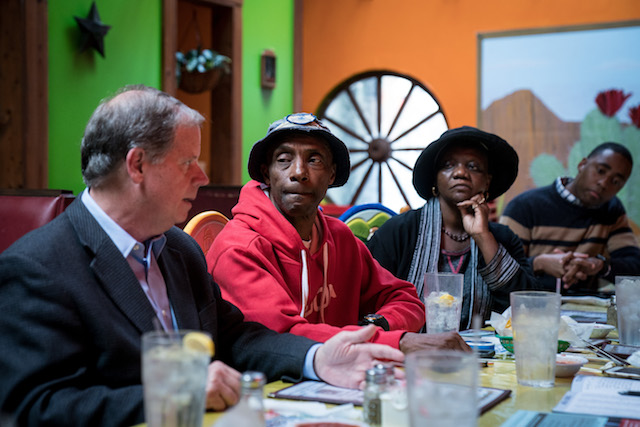My colleagues and I have worked for years in our home state of Alabama to advance the voices of Black people in the electorate. Naturally, we put the full strength of our capacity into the special U.S. Senate election to defeat former Alabama Supreme Court chief justice Roy Moore, a racist who said at a September rally that the last time America was great and "had a direction" was when "families were united—even though we had slavery.”
After we prevailed and rejoiced, we woke up the next morning to hear national news media finally acknowledge a truth that we have known all along: Black Voters Matter. We also woke to a chorus of thank you’s from around the country, as people reckoned with the numbers and the reality that Black Alabamans saved this country from yet another international political disgrace—the election of an alleged child molester and rapist, a career homophobe, an Islamophobe and a birther backed by White nationalist Steve Bannon.
The thanks and acknowledgements are appreciated. It is always welcome to have your work recognized. Moreover, it is meaningful to see the special praise for Black women, who had the greatest numbers and impact in this race. In fact, many of the voter turnout operations were led by Black women. However, there are two more truths that Alabamans, persevering in the name of justice and dignity in an aggressively racist context, need you all to recognize.
1. Black voters were doing this for us.
We understood perfectly well what Moore represented and we chose accordingly. Black voters in the South are sophisticated enough to know the difference between "Confederate Christianity" and the Christian faith that many of us practice. We saw the code words and the involvement of White supremacist leaders like Bannon. We knew Moore was an extension of the racist Republican right.
This was not, and I repeat was not, about any affection for senator-elect Doug Jones, a Democrat. The Jones campaign made a number of serious missteps in messaging to our community. For instance, they ran an ad that started with a Confederate soldier and a Union soldier, talking about how they compromised. Umm… no. Black folks were rightfully horrified by this ad.
Although the Jones campaign may not have done anything right in their messaging, local Black folks did. We crafted relevant messages that spoke directly to our people in ways that moved and affirmed them. Black voters outperformed our numbers because there were layers of Black leadership who saw this election as decisive for our own quality of life issues.
2. The game-changing Black voter turnout was a result of the Black civic infrastructure that existed in the state already.
While there were national groups that contributed and did work in the campaign, this was not a parachute victory propelled by outsiders. The outcome was the result of Black Alabamans looking out for each other with our own homegrown system for mobilizing. It is very important to note that we did this through a deep understanding of our state and the various dimensions of our communities, whether rural or urban.
Operations like the one I co-founded with Cliff Albright, Black Voters Matter Fund, created a strategy that focused on centering and resourcing community groups in marginalized neighborhoods and rural areas. We knew, for example, that the more rural Black Belt region of the Delta may have a less dense population but it also has a high voter turnout and strong performance in key elections. The rural Black vote was an important but often overlooked factor in the Jones victory.
The messaging of the national Democratic Party was not what won the election. It was people on the ground from the same communities we were reaching out to, with long term commitments to our people and the cultural competency to speak to our folks in a way that held meaning for them. The national political operatives made their message about the candidates. We weren’t in love with either of the candidates but we knew what was at stake, so we made the message about us, and organized on messages that moved us like "It’s About Us," "Black Voters Matter," "Woke Vote" and "Vote or Die."
Black Alabamans won this special election for us and by us, not as pawns of the will of the national political powers. We did it using our own homegrown tools that we have been building and refining for many years. What does this mean for the next steps? Most fundamentally, it means the Democratic Party needs to shift its strategy to support, augment and provide substantial investment in Black political organizing infrastructure in the South. Likewise, private philanthropy must follow suit and put the weight of their dollars behind us.
We’ll take your thanks and appreciation but more than this, we demand a shift in power that prioritizes our community and puts resources into our political self-determination. We are not here to be foot soldiers. We are here to be leaders.
Black voters in the South have a deep analysis about how to strategize and win in critical moments, in the face of conservative, reactionary and overtly racist environments. As the rest of the nation finds itself in a similar battle, why not listen to us? We’ve been beating bigoted zealot bullies for a long time, and we know what we’re doing.
LaTosha Brown is a community organizer from Selma, Alabama. She co-founded the Black Voters Matter Fund with Cliff Albright.
